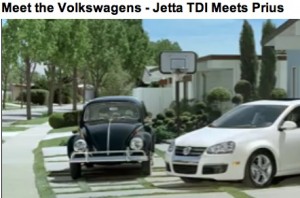 What’s your hybrid sound like? That’s the question that Max asks in the “Jetta TDI Meets Prius” Volkswagen commercial. Max is referring to the fact that the Prius lacks a cool sound. Coolness seems to be the least of its problems. As far as the safety experts are concerned, a bigger issue is the threat hybrids pose if pedestrians, children and others who can’t hear them approaching. To address this problem, manufacturers of hybrid cars are looking into ways to create digitally enhanced vroom sounds.
What’s your hybrid sound like? That’s the question that Max asks in the “Jetta TDI Meets Prius” Volkswagen commercial. Max is referring to the fact that the Prius lacks a cool sound. Coolness seems to be the least of its problems. As far as the safety experts are concerned, a bigger issue is the threat hybrids pose if pedestrians, children and others who can’t hear them approaching. To address this problem, manufacturers of hybrid cars are looking into ways to create digitally enhanced vroom sounds.
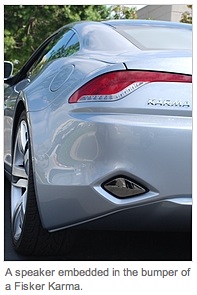 According to a story appearing in The New York Times (“Hybrid Cars May Include Fake Vroom for Safety” by Jim Motavalli ), working with Hollywood special-effects wizards, some hybrid auto companies have started tinkering in sound studios, rather than machine shops, to customize engine noises. The Fisker Karma, an $87,900 plug-in hybrid expected to go on sale next year, will emit a sound – pumped out of speakers in the bumpers – that the company founder, Henrik Fisker, describes as “a cross between a starship and a Formula One car.”
According to a story appearing in The New York Times (“Hybrid Cars May Include Fake Vroom for Safety” by Jim Motavalli ), working with Hollywood special-effects wizards, some hybrid auto companies have started tinkering in sound studios, rather than machine shops, to customize engine noises. The Fisker Karma, an $87,900 plug-in hybrid expected to go on sale next year, will emit a sound – pumped out of speakers in the bumpers – that the company founder, Henrik Fisker, describes as “a cross between a starship and a Formula One car.”
The story also quotes a spokesperson for BMW mentioning how one possibility is choosing your own noise.
Paul Scott of Santa Monica, Calif. the vice president of the advocacy group Plug In America, told The Times that he often rolls down the windows along busy streets and turns up his radio so people know his virtually silent 2002 Toyota RAV4 electric car is there. He also said he would prefer giving drivers control over whether the motor makes noise, unlike, say, the Fisker Karma, which will make its warning noise automatically.
“Quiet cars need to stay quiet – we worked so hard to make them that way,” he said. “It’s the driver’s responsibility not to hit somebody.”
Using the word noise in the context of a “green machine” has people flipping out.
Motavalli’s story ran on Tuesday. By Friday, he found himself doing a blog post on the reaction to it.
“Anti-noise activists have weighed in. In an e-mail statement, Arline Bronzaft, chairwoman of the noise committee of the Council on the Environment of New York City, and Les Blomberg of the Noise Pollution Clearinghouse, said that “individuals who have worked in the noise field for many years, hoping to lessen the din of our environment, because of the adverse impacts of noise on mental and physical health and well-being, must become part of research team working on such solutions.“
Comments were hot and heavy too (234 at last count). Here’s one example:
“I suppose that when autos replaced horses, there were some who thought there should be an artificial “clip clop” to warn pedestrians.
How about just requiring that people look both ways before crossing the street?
They’re not going to hear your car’s artificial noise unless it’s a siren, since they’re plugged into their iPods anyway.”
This reader makes a good point.  I’ve written before about how you can’t legislate against stupidity. I’ve also written about the need for heightened awareness.
Helicoptering out a bit, the thing that’s interesting is that there may be an optional technical means that can be used in a due diligence sort of way to let people know you are there. That’s pretty cool. It also reminded me of something else I recently read. Volvo is working on technology helps the drivers stay out of trouble by “detecting” pedestrians and slowing down the vehicle.
Check out this video.
I think it is great the engineers have come up with a “driver assist” capability. However, my feeling is that it should be considered a safety net/last resort. There’s no excuse for driving unaware of your surroundings.
No matter whether you are behind the wheel or moving near a car, truck, train, etc., it is your responsibility to be super-alert. And if it takes a ringtone-like sound outside a car, an alarm inside a car, or a brake override to serve as a reminder, then so be it.
###

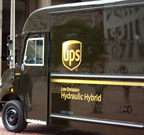
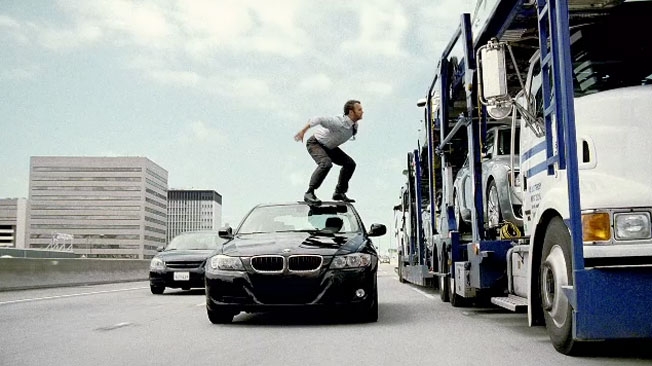

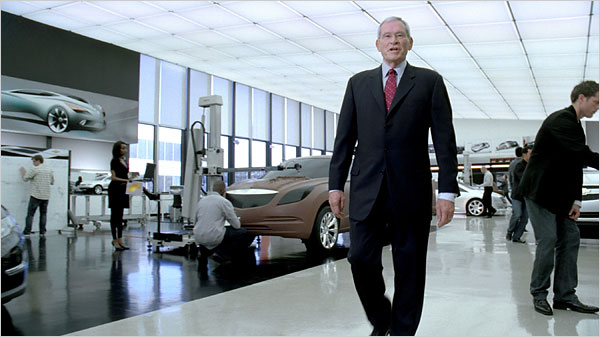
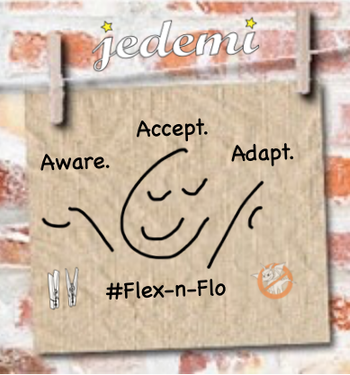












Speak Your Mind